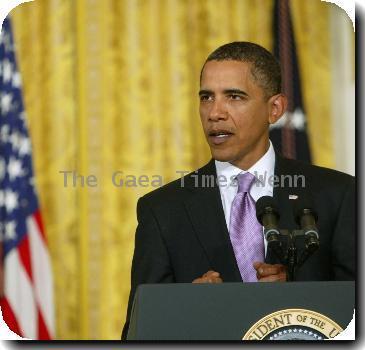Govt report says deepwater drilling moratorium hasn’t increased unemployment in Gulf region
By Matthew Daly, APThursday, September 16, 2010
Report doesn’t link moratorium to unemployment
WASHINGTON — The deepwater drilling moratorium in the Gulf of Mexico has not increased unemployment in the region, says a new report from the Obama administration. Louisiana lawmakers and the oil and gas industry immediately disputed the finding.
The report, released at a Senate hearing Thursday, said the moratorium imposed after the BP oil spill likely caused a temporary loss of 8,000 to 12,000 jobs in the Gulf region, including about 2,000 on deepwater rigs. Total industry spending in the region decreased by nearly $2 billion, the report said, most of it by drilling operators.
But the report found no large increases in unemployment claims, thanks in part to a big hiring push for cleanup crews and massive spending by BP on the recovery effort.
The scenario is far rosier than described in some previous reports, including an Interior Department estimate over the summer that 23,000 jobs could be lost to the moratorium.
Sen. Mary Landrieu, D-La., a leading critic of the moratorium, attacked the report and said the “heavy hand of the federal government” was placing thousands of jobs in the Gulf at risk.
“I find it stunning that the administration was aware that their actions might eliminate nearly 23,000 jobs in an already faltering economy and proceeded anyway,” Landrieu said. “That decision has imperiled thousands of small businesses who are reliant on the revenue generated by the oil and gas industry.”
Landrieu and fellow Louisiana Sen. David Vitter repeatedly challenged the report’s accuracy and noted that it did not address what they called a de facto moratorium on shallow-water drilling. Fewer than a dozen shallow-water drilling permits have been issued in recent months, compared with an average of 40 a month before the BP spill, they said.
Vitter, a Republican, told a Commerce Department official that the report’s upbeat analysis was at odds with reality in the Gulf.
“I have to tell you, I talk to these people every day. It sure as heck is not what they are telling me,” he told Commerce Undersecretary Rebecca Blank at a hearing of Senate Small Business Committee. “Every day I hear the exact opposite.”
Jim Noe, executive director of the Shallow Water Energy Security Coalition, said it was outrageous that the report credited spill cleanup work as a net positive for the Gulf Coast.
“Spinning this as a positive is like saying that a hurricane is good for the economy because of all of the rebuilding work it will provide afterward,” Noe said. “It’s the cleanup that’s ‘temporary,’ not the impact of the moratorium.”
Louisiana State University economist Joseph Mason called the report overly optimistic, noting that it did not address shallow-water drilling and assumed that job losses would stop once the moratorium ends.
“The White House characterizes these as the most probable numbers. I characterize them as the lower bounds,” Mason said.
Still, Mason’s own study offered a similar conclusion, projecting that the moratorium could cost the Gulf Coast at least 8,169 jobs, $2.1 billion in economic activity and $98 million in lost revenue from state and local taxes.
Mason, who also works with the American Energy Alliance, a pro-industry group, said his estimates of job losses will grow if the moratorium continues beyond six months.
Vitter said he was astonished to learn that the Obama administration did not do an economic analysis before imposing the moratorium in May, calling that inexcusable.
But Blank, the Commerce Department official, said that in the wake of the BP spill, officials were focused on safety.
“The concern for protecting the environment, protecting the safety of the drilling industry, was the paramount concern,” she said.
Blank told the Senate panel that of 41 rigs operating in deep waters at the time of the moratorium, only five have left the Gulf.
The new report said other surveys, including the one by Interior, measured worst-case scenarios that never came to pass. Instead, the report said, the majority of rig workers have kept their jobs during the moratorium as the oil industry used the opportunity to repair rigs or kept skilled workers employed in anticipation that deep-water drilling would resume.
President Barack Obama imposed the deepwater drilling moratorium in May following the April 20 oil well blowout that killed 11 workers and spewed more than 200 million gallons of crude into the Gulf before it was capped in mid-July. Meant to allow time to ensure adequate safety and cleanup procedures are in place on other deepwater drilling rigs, the moratorium is scheduled to last through November, although federal officials have indicated it could end before then. It’s also being challenged in court.
Officials in Louisiana and elsewhere contend the moratorium is an unnecessary job-killer, but Thursday’s report disagreed. It found no greater rise in unemployment in the five Louisiana parishes most affected by the moratorium than elsewhere in the state or nation.
“There is no evidence of declining employment after the moratorium was announced,” the report said.
The report focuses narrowly on the moratorium and does not seek to measure wider economic impacts from the oil spill itself — for example, on fishing or tourism.
The report finds a modest impact on oil and natural gas production in the Gulf from the moratorium, which should not affect the price of oil. The reductions are small compared to worldwide production and come at a time when overall production is up, the report said.
Tags: Accidents, Barack Obama, Energy, Environmental Concerns, Labor Economy, Louisiana, North America, Personnel, United States, Washington

